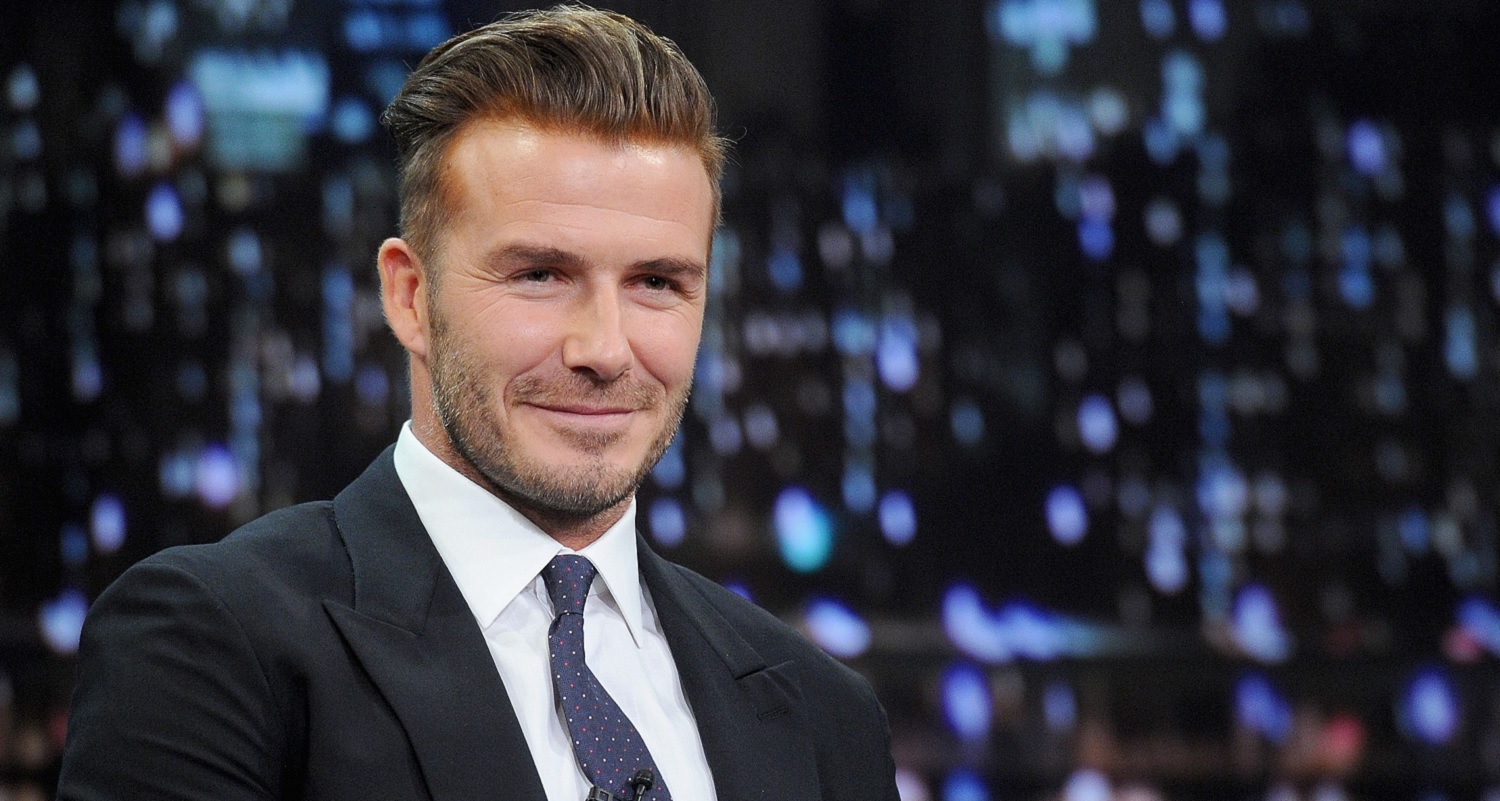‘Why David Beckham – and all of us – must speak out on behalf of LGBTQ Qataris’
Beckham's reported $10m Qatar deal stands in stark contrast to George Clooney's calls for a Brunei boycott over its gay sex death penalty, writes Jamie Tabberer.

Words: Jamie Tabberer; picture: NBC
Forget Harry Styles in a dress – in 1998, it was all about David Beckham in a sarong.
Photos of the England football star in the garment, future wife Victoria by his side, were plastered across newspapers for days. He looked great, but the commentary was mostly mocking and homophobic: “Footballer wears skirt, looks gay” and so on. (Little has changed 23 years on).
David was unfazed, knowingly ahead of his time. “Today, no-one bats an eyelid if a guy wears a sarong in the street,” he reflected in 2018.
Thirst trap photoshoots and a 2002 Attitude cover followed; he wore green eyeshadow for LOVE mag as recently as in 2019. Beckham remains an antidote to football’s toxic masculinity and homophobia, and to many, more than just an LGBTQ-friendly pin-up or ‘metrosexual’. He even told the BBC in 2007: “I’m very honoured to have the tag of gay icon.”
Like the term ‘metrosexual’, that quote hasn’t aged well.
This week, to the disappointment of many LGBTQs, the former England captain reportedly signed a £10m ($13.71) deal to become the face of Qatar, where homosexuality is illegal and punishable by up to three years in prison. Under Sharia law, native Muslims caught ‘leading, instigating or seducing a male anyhow for sodomy or dissipation’ can be punished by death.
“Qatar are very much in his hands”
The news originated in a Mail On Sunday report, with unnamed sources saying David will also play a key role in promoting next year’s FIFA World Cup, which Qatar is hosting.
“This is a deal that is supposed to be top secret,” the insider claimed. “It is being kept quiet until there is an opportunity to land it without David’s PR being affected too much. Well, that’s the hope anyway. Qatar are very much in his hands. There are concerns about his reputation but there is enough money on the table for the optics not to matter so much.”
Side note: the report remains unconfirmed, and a rep for David declined to comment when contacted by Attitude on Monday (8 February). But David’s silence alone prompts a need for reflection – not just on his allyship, but everyone’s.
After all, how many of us are willing to support those less fortunate, only until it becomes inconvenient to do so?
Take the football community turning a blind eye to Qatar’s human rights abuses, from its treatment of women to migrants’ rights; according to Amnesty International, migrants from Bangladesh, India and Nepal have been abused, exploited and forced to live in appalling living conditions while working on the Khalifa Stadium, that will host a part of the 2022 FIFA World Cup.
Then there is the question of also how best to support LGBTQs in anti-gay countries – including the 70+ where it remains illegal to be gay and the 11 where homosexuality is punishable by death.
Certainly, it’s not by being uninformed about their plight – or worse, brazenly disregarding it. It was the very sweet Jedward boys, of all people, who put it best in December 2020 when they tweeted: “Info for influencers promoting Dubai! [in the UAE, which also carries the death penalty for gay sex] It doesn’t have rights for LGBTQ+ so please stop promoting countries where it’s criminal to kiss the one you love!” .
Commercial boycotts of such countries do work – see the George Clooney-spearheaded hotel boycott when Brunei briefly introduced the death penalty for gay sex in 2019. But donating to relevant causes and spreading the word about local inequalities also helps.
“We would urge him to fully familiarise himself with the disturbing human rights situation in Qatar”
What is not acceptable, however, is to say and do nothing, as David – a wealthy, powerful and influential public figure – has done thus far.
As Amnesty International UK boss Kate Allen told Attitude yesterday: “David Beckham’s business deals are obviously a matter for him, but we would urge him to fully familiarise himself with the disturbing human rights situation in Qatar and be prepared to speak out about it.”
Herein lies a crucial point: it would be unwise to write David off as a money grabber or a tacit supporter of a homophobic regime at this point, as it remains to be seen exactly how he would use such a platform. Could he use his influence to move the needle on LGBTQ rights in the region? If so, how?
We can think of one way, at least. Short shrift it may be, but FIFA have said Pride flags will be allowed in 2022 World Cup venues. If David Beckham were to wave one – perhaps in a sarong? – it would be a small but powerful gesture… And the very least he could do.
Follow Jamie Tabberer on Twitter @jamietabberer
